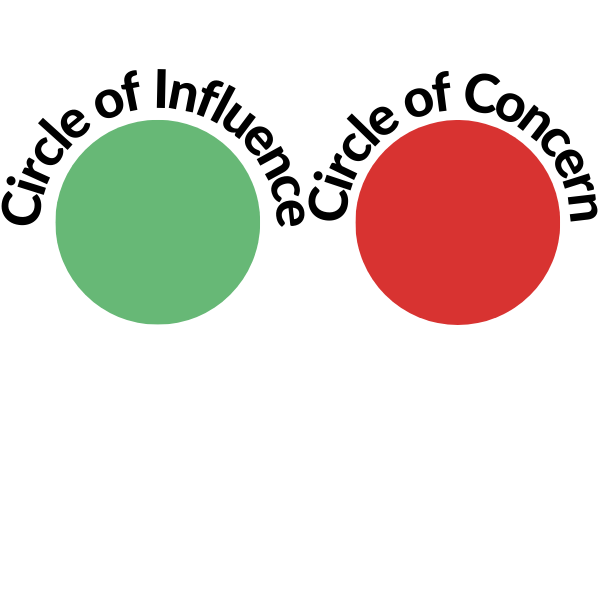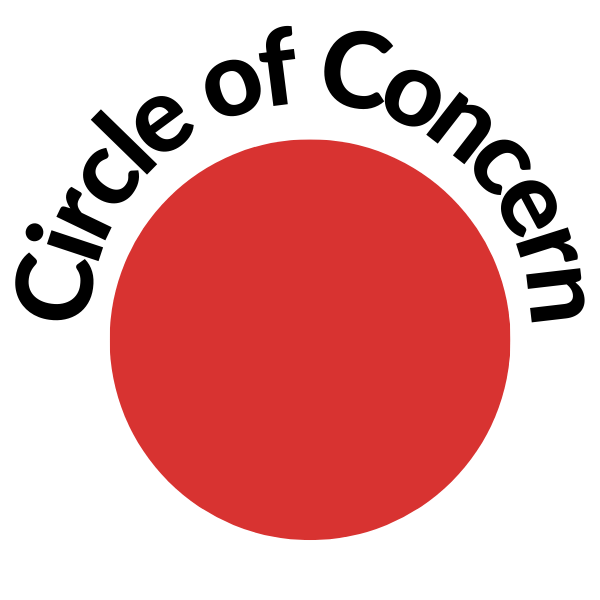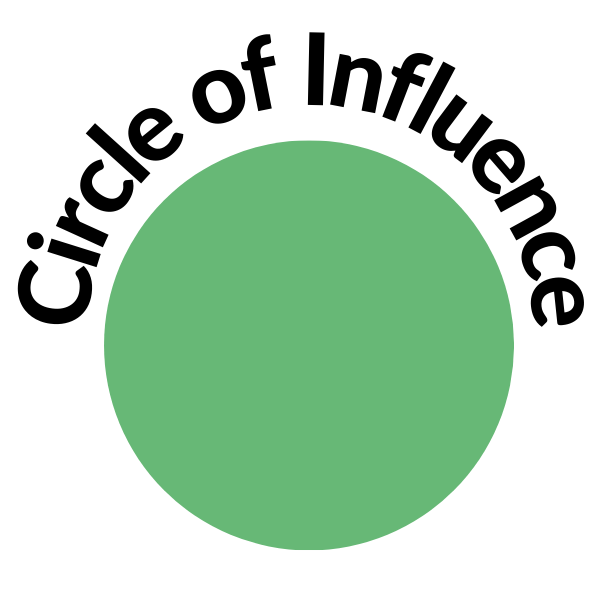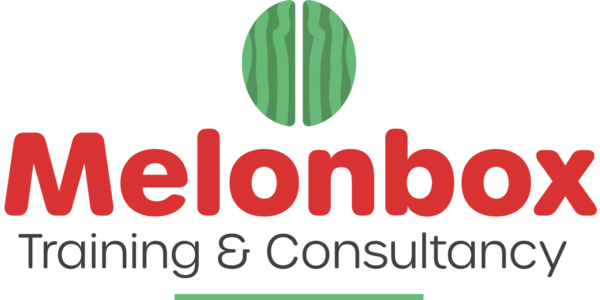Circle of Influence – Circle of Concern

For anyone who has not come across this so far in their career, let us look at what it is all about.
The theory of the circle of influence and circle of concern was popularised by Stephen Covey.
Stephen Covey was an American educator, author, businessman and keynote speaker. Covey was named as one of the 25 most influential people in 1996 by Time Magazine.
You may have come across the book, “The 7 Habits of Highly Effective People”, of which he was the author.
This book, first published in 1989, has reportedly sold over twenty million copies worldwide and was named the most influential business book of the twentieth century. Still relevant today, I can recommend a read.

Covey listed the seven habits as:
Habit 1 – Be proactive.
Habit 2 – Begin with the end in mind.
Habit 3 – Put first things first.
Habit 4 – Think win/win.
Habit 5 – Seek to understand first, before making yourself understood.
Habit 6 – Learn to synergize.
Habit 7 – Sharpen the saw.
It is under habit 1 that Covey talks about the circle of influence and circle of concern.
I do not profess to be a guru on Covey’s description of habit 1 or, indeed, the circle of influence and circle of concern. We all read things and put our own interpretation and understanding into what we have read. I don’t know whether I fully use the circle of influence and circle of concern in the way Covey intended but I have found it helpful in both my work and personal life, so I thought I would share my take on it.

Habit 1 – Be Proactive
What does ‘be proactive’ mean and why is it so important?
The definition of proactive is ‘acting in anticipation of future problems, needs or changes’.
In business, to be anticipating any future problems, needs or changes gets you ahead of the game. Very often, we can be so busy dealing with the day to day and the here and now, we may feel we don’t have the time or capacity to think about what’s round the corner.
However, being proactive will make the here and now easier because we’ve potentially already considered how it will play out, planned it in advance, anticipated and/or avoided any pitfalls or time wasting.
None of us can see into the future but we can consider what may / may not happen and then have a plan of action for any of those eventualities. If an eventuality becomes a reality, having already considered it, will make it easier for us to manage.
Covey describes being proactive as taking responsibility for your own life. That’s a big statement, so he takes the word ‘responsible’ and tweaks it into ‘response-able’. He recognises that not taking responsibility for yourself, and your behaviour, will prevent you being proactive and, therefore, prevent you moving forward.
If you aren’t ‘response-able’ and don’t take responsibility for your own life, you can get caught up in blaming others for outcomes in your life.
For example, you can’t blame everything on your parents or your grandparents. You can’t blame genetics, circumstances, conditions, or conditioning for your behaviour. People who take responsibility for their life know they choose their own behaviour; they are response-able.
Taking responsibility for our own life frees us up to be proactive. Although proactive means acting in anticipation of future problems, needs or changes, you can be proactive but focus on the wrong things, which will stunt your proactivity. This is where the circle of influence and circle of concern comes in, to help you be proactive in the right direction.

The Circle of Concern
There are aspects of life that might concern you greatly but, unfortunately, you cannot do anything about them.
These are the things in your circle of concern. They might include your family, politics, the planet, the government, war, poverty – your list could go on.
Anything outside of this circle basically is of little or no concern to you.
The things inside your circle of concern are likely to change throughout your life. For example, you may have little knowledge about a subject, let’s say climate change, and so climate change may not be in your circle of concern.
If, over time, you are exposed to more information through the media, the internet and investigating into the subject yourself, you may become more informed and aware of the damage we are doing to our planet. This might start to really bother you as you hear of more species of animals that are now extinct or under threat of extinction, you might have fears about how the heating up of the planet is impacting the weather systems. Climate change may now be in your circle of concern.
Some people may not have family in their circle of concern because they have never had any reason to worry about them. If a family member becomes ill and they are faced for the first time with a family member’s mortality, this can make people consider what would happen if this person got ill, or that person, or anyone they know or love. The safety of family and friends then goes into their circle of concern.
Spending time and energy on the areas in your circle of concern will prevent you from being proactive. You won’t be able to move forward because you are focusing on things you can’t do anything about.
You, singlehandedly, cannot solve climate change. You cannot stop wars, you cannot change politicians and you cannot stop anyone getting sick. Putting any focus on these areas leaves you standing still.
Covey also argues that spending time and energy on factors which are outside of your control can also lead to feelings of inadequacy and helplessness because you can’t do anything about them.

The Circle of Influence
The circle of influence concentrates on the areas you are concerned with that you can do something about.
You still cannot solve climate change but there are some things you could do to influence it. You still cannot stop a family member getting sick but there are things you can do to influence the outcome of it.
Spending time on the things within your circle of influence is proactive and helps you move forward.

Let us look at a couple of examples:
If you have a family member who gets seriously ill, that would go straight into your circle of concern.
It would be perfectly natural to be worried and concerned.
Any thoughts of ‘why is this happening?’ ‘it’s not fair’ ‘why them?’ are examples of not taking responsibility. Thoughts like these are unhelpful and would not make you ‘response-able.’ You get stuck in an endless vortex of these thoughts and because you will never get the answers, you won’t be able to move forward.
Finding the answers to these questions, even if you could, does not change the situation anyway.
Taking responsibility and accepting what is happening is a more positive step; it doesn’t change how upsetting it is or how worried you are but it does stop you going down a rabbit hole looking for answers you will never find.
What can you do about a family member being ill?
Can you change the fact they are ill?
Can you stop them being ill?
Can you change how ill they are?
It is likely the answers to these questions are all ‘no.’
Rather than think about what you can’t do, think about the things that you can do that might influence the outcome.

You could:
– Make sure they get to all their appointments.
– Investigate alternative treatments.
– Offer financial support if they need it, and you have it.
– Spend quality time with them.
– Take them to meet up with other family members to keep their spirits up.
– Laugh with them when they are up, and comfort them when they are down.
All these things are now in your circle of influence.
We go back to the same questions.
Does it change the fact that someone is ill? No.
Does it stop them from being ill? No.
Does this change how ill they are? No
Does it stop you being concerned? No.
But….
Does it give you tangible things to do that could influence the outcome? Yes.
Does it make you proactive? Absolutely.
Does it make you feel useful and able to help the person and situation? Definitely.

If we take climate change. This is a massive subject with very complex solutions, and agreement needed from all world leaders.
Can you change the fact that climate change is happening?
Can you stop it happening?
Again, the answers are likely to be ‘no.’ So, this sits in your circle of concern. But how could you influence it?
You could:

– Ensure you recycle as much as you can.
– Stop supporting the use of one time plastic.
– Investigate and invest in other options for heating your home.
– Buy planet friendly products.
– Ensure your garden is bee and butterfly friendly.
– Take part in surveys and research to support the data for climate change.
All these things are now in your circle of influence.
It doesn’t change the fact that climate change is happening, and it doesn’t stop you being concerned.
But you are doing something tangible to influence the outcome, you are moving forward with something which makes you proactive and you feel useful as you are helping the planet as much as you can.
And, if everyone on the planet took the same proactive approach, climate change could be stopped and even reversed.

Business
Looking at the circle of influence and circle of concern in the workplace, the principles are the same.
Things that might be in your circle of concern.
You might be worried about talk of redundancies. You might want to get to the next layer of management but there are no opportunities. You might be concerned about the level of pay increase you will get this year. Your direct line Manager has resigned and you are concerned about their replacement. You might just be worried about all the work you have piling up.
These are all things that would sit in your circle of concern as you personally cannot singlehandedly resolve any of them.
Spending time worrying about any of these is not proactive and doesn’t change anything. Focusing on how unfair it is that you might be in line for redundancy, or that you won’t get the level of pay increase you think you deserve doesn’t change anything and won’t move you forward in any way. It renders you useless in taking responsibility for your situation.
Looking at what might be within your circle of influence.
With regards to redundancies, you could:

– Ensure you are achieving your objectives and KPI’s to demonstrate your value to the business.
– Look to support another area, department or person that may be under performing.
– Prepare your CV and letter of application template, so you have them ready to go if you need them.
– Start putting the feelers out for jobs now, to see how the market is looking.
Concentrating on your circle of influence is proactive and will help you move forward if that concern becomes a reality.
That is the basic principle of the circle of influence and circle of concern; it really is a valuable way to move forward with something.
I think it is fair enough when we receive news we don’t like that we take a moment to absorb and get our heads around what is going on, that is a perfectly natural response.; we need time to adjust.
The quicker you can move from your circle of concern to your circle of influence, the better you will start to feel. Taking action about a situation you find distressing, stressful or upsetting is a lot healthier and makes you more able to cope with what gets thrown at you in life.
This is pretty much where my theory on the circle of influence and circle of concern ends.
I do have some thoughts on how this methodology might be used for people experiencing grief.
If you do not want to read on, thank you for reading this far. If you are currently in grief and don’t feel able to read on, thank you for reading this far and look after yourself.
Grief

Grief is an awful place to be. We sit in grief for lengthy periods of time, sometimes years and years.
Grief is overwhelming, it is sad, it is lonely, it is a horrible place.
Grief is a mental and emotional response which causes physical pain and health problems.
And, distressingly, grief is something we carry around whilst painting a smile on our faces and forcing a laugh out of our lungs.
When we lose someone we love, we are plunged into grief and they are plunged into our circle of concern.
I wouldn’t be crass enough to take a method for dealing with a business situation and say it will work with grief. It will not.
But I would go so far as to say that understanding the circle of influence and circle of concern methodology might help you tip toe towards understanding and acknowledging what your thought process is whilst you sit in grief.
But, more so, if you are supporting someone who is grieving, it might help you understand where they are at and help you support them as best you can.
Grief will be experienced differently depending on who it is that has died and the relationship you had with them. It will be different depending on the age someone dies and how they died. Grief will be different for different people, who are in exactly the same circumstances, because we don’t all deal with the same set of circumstances in the same way.
Grief is personal, all-encompassing, and unpredictable.

If you have ever watched someone grieving, you may have seen them desperately searching for answers you know they will never find. You might be able to see and feel their pain. You might hear them ask when their awful feelings will pass or even just subside a little, but you know they will not. It is heartbreaking to be in grief and heartbreaking to watch someone you love go through grief.
You hear people say that death is so final. Until you have experienced the death of someone close to you, I think it’s difficult to understand what that means.
It’s obvious that death is final, but that’s not what someone means when they say that. What they are dealing with is the realisation and finality that they will never see that person again, never touch them, hear their laughter, wipe their tears, feel their arms around them, smell their perfume/cologne. Never.
If you know someone you love is grieving, the chances are they are sitting in their circle of concern a lot of the time. There is no easier way to explain it than saying, “they just want that person back.” Sometimes it doesn’t get any more or less complicated than that. They are sitting in their circle of concern just wanting, more than anything, not to be in that situation.
And, like the theory suggests, sitting in the circle of concern will not allow them to move forward. Sitting in the circle of concern is an endless list of questions that won’t get answered and wishes that won’t get granted. I believe that part of grieving means sitting in the circle of concern for some time.
But, as someone supporting someone grieving, take yourself out of that situation for a moment and pop your logical head on.
You know that focusing on the circle of concern means that a person will not move forward.
You know it is somewhere where they will sit feeling useless and helpless.
You know that, in the circle of concern, they won’t find any peace, any answers or any comfort.
But you also know that people need to grieve. The person you love who is hurting needs to grieve for what they have lost. They will not be able to think about their circle of influence and, let’s face it, they really won’t care.
There are many ways you can support someone who is grieving, and you need to reach out to someone who is trained appropriately to find out what they are; there are a lot of great organisations you can contact.
But being aware that someone is focused on their circle of concern unable to move, gives you the opportunity to look at their circle of influence for them.
You could think about what they could focus on that would be in their circle of influence. You might come up with 2, 3 or half a dozen things they could do to take some baby steps that might start to move them from their circle of concern.
When that person gives any kind of indication they are frustrated with their position of not being able to move forward, or not knowing how to deal with things, once you get that first indication, you can provide a gentle hand of support and guide them towards something you believe is in their circle of influence.

“Why don’t you and I go for a walk, just for half an hour, let’s get outside.”
This might seem such a simple thing but we know exercise helps, we know a change of scene can help clear our mind fog. We know being outside clears the cobwebs away. And being outside reminds someone that the world is carrying on regardless, even though theirs is temporarily on pause.
“Talk to me about (person’s name) favourite place (or song or poem or film or holiday) and I’ll jot a few ideas down for the service.”
“Why don’t we take the next 15 minutes to look at that letter that came through this morning about the life insurance.”
By putting short time measures on things, it might encourage them to step outside of their circle of concern for that short space of time.
So, you can be their circle of influence, supporting and guiding them to take those baby steps forward. A few proactive steps will help them feel like they have accomplished something, no matter how small. They stepped out of their circle of concern for a moment and moved forward.
When they want to step back in, let them, never stop anyone grieving.

Sometimes we can’t always see our circle of influence, all we can see is our circle of concern and grieving is a perfect example of this. You can see someone else’s circle of influence for them and give them help when they are ready to see a little of it as well.
At Melonbox Training & Consultancy we are here to support your business. Talk to us about your current challenges, what keeps you up at night and how you would like to increase your peoples’ skills and customer numbers.
Book your FREE 1-hour chat with us.
Melonbox Training & Consultancy Services
Quenching the Thirst for Learning

